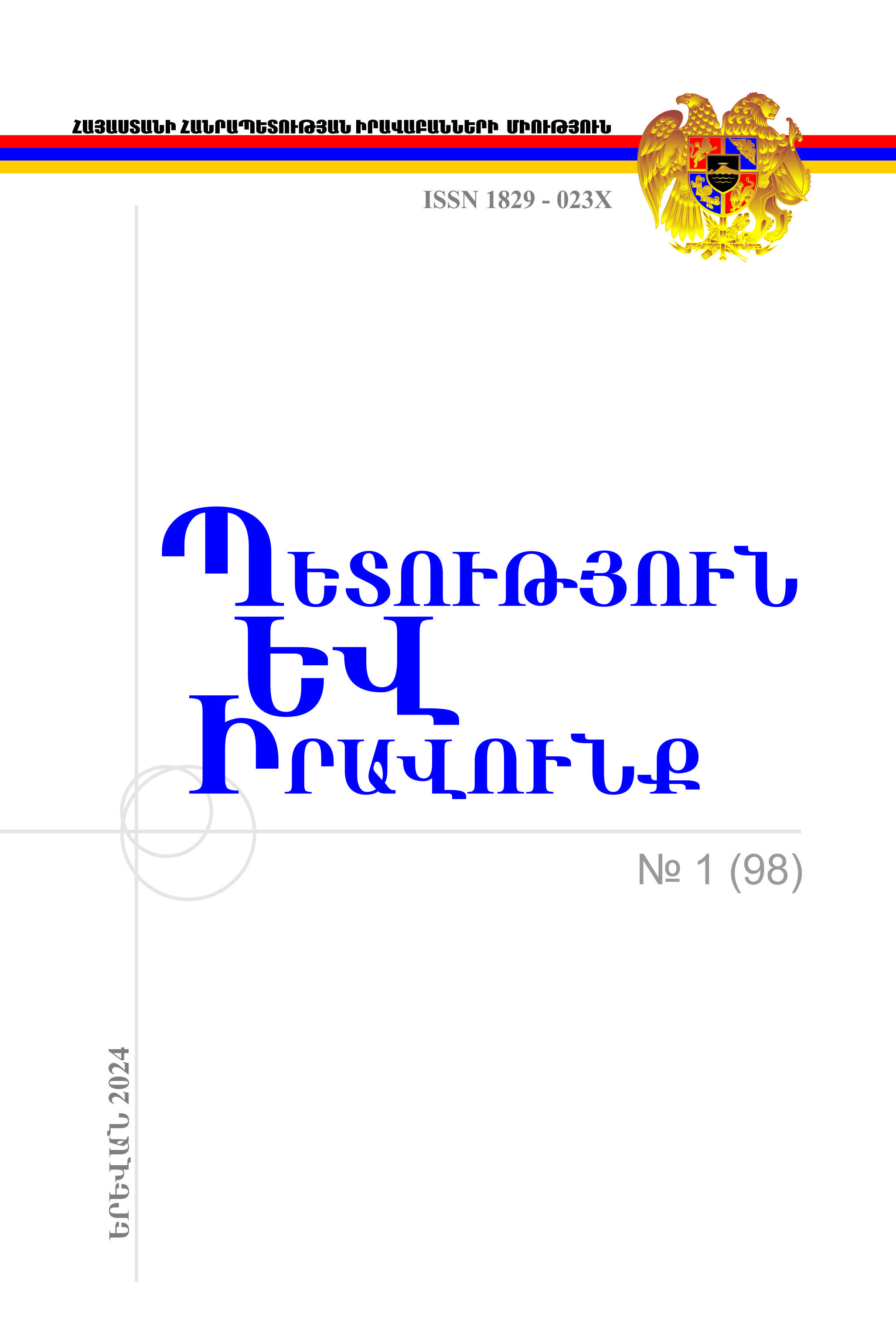THE CORRELATION BETWEEN THE TIME OF COMMITTING THE CRIME AND THE MOMENT OF THE END (COMPLETION) OF THE CRIME
DOI:
https://doi.org/10.46991/SL/2024.98.122Keywords:
criminal offense, dangerous consequence, legality, culpability, subjective culpability, effective control, formal crime, material crimeAbstract
This article explores the issue of determining the “moment of committing a criminal offense”, which is a substantial part of the principle of the operation of criminal law over time. This notion holds significant theoretical and practical importance, often giving rise to abundant legal disputes. The problem of the time of the commission of the criminal offence remains highly relevant and up-to-date, because the new Criminal and Criminal Procedure Codes of RA came into force on July 1, 2022, and the exact determination of the law to be applied to persons who committed a criminal act before that time is of crucial importance.
Furthermore, the author concludes that in case of formal crimes, when the execution of the act itself is a completed crime, or in the case of material crimes, when between the criminal act and the occurrence of a dangerous consequence there is no time gap or it is trivial, then the time of the crime is the moment of the act itself. Nevertheless, when there is a time gap between the criminal offense and the occurrence of a dangerous consequence, and the person who committed the criminal act (action or inaction) upholds effective control over the occurrence of a dangerous consequence and can prevent it, then the time of committing the crime should be considered the moment of the occurrence of the dangerous consequence.
Downloads
Published
Issue
Section
License
Copyright (c) 2024 State and Law

This work is licensed under a Creative Commons Attribution-NonCommercial 4.0 International License.

